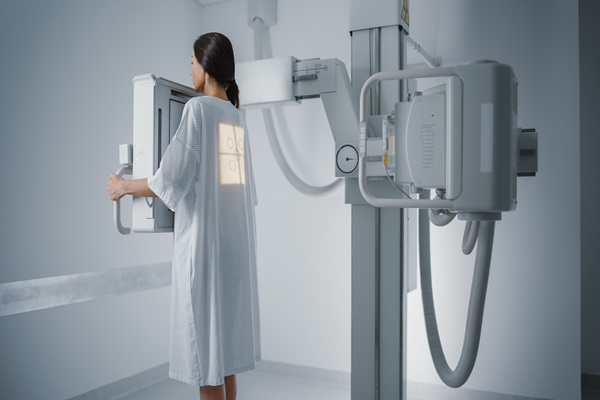Common Approaches to Breast Cancer Treatment

Being diagnosed with breast cancer can be a scary and isolating experience. Fortunately, there are several breast cancer treatment methods that can improve patients' outcomes and overall health. Understanding these common approaches is crucial for patients and their loved ones navigating the complexities of diagnosis and treatment.
Surgery
Surgery is one of the primary methods of treating breast cancer, aimed at removing cancerous tissue from the breast. There are various surgical options, including:
Lumpectomy
The removal of the tumor and a small amount of surrounding healthy tissue. Most patients who undergo a lumpectomy also have radiation therapy or chemotherapy.
Mastectomy
The removal of all breast tissue from a breast, including the lobules, ducts, fatty tissue, and skin (e.g., the nipple and areola). This procedure may be necessary for patients who have pockets of cancer cells in multiple areas of their breast or cannot undergo radiation therapy.
Sentinel lymph node biopsy
A procedure where the surgeon removes lymph nodes from nearby tissue for testing to see if the cancer has spread.
Axillary lymph node dissection
A procedure where the surgeon removes several lymph nodes from the armpit. It is particularly done if cancer is found during imaging tests or after a sentinel node biopsy.
Contralateral prophylactic mastectomy
Removal of both breasts. This procedure is a possible option for patients with a higher risk of getting cancer in their other breast or a genetic disposition of getting breast cancer. However, most patients with breast cancer in one breast will never get cancer in the other breast.
As with other surgical procedures, there are risks of surgery for breast cancer treatment. These often include a risk of pain, bleeding, and infection. Additionally, removing lymph nodes from the armpit may lead to arm swelling (lymphedema).
Chemotherapy
Chemotherapy, or chemo, involves the use of drugs to destroy cancer cells, typically given intravenously (IV) through a vein or in an oral tablet. Oncologists often use chemotherapy as part of a patient's breast cancer treatment plan to either shrink tumors before surgery (neoadjuvant chemotherapy) or to kill any remaining cancer cells after surgery (adjuvant chemotherapy). The oncologist may also utilize neoadjuvant chemotherapy to prevent the cancer from spreading to the lymph nodes and other parts of the body.
However, chemotherapy may cause side effects. Depending on the type of chemotherapy drug used, these may include:
- Hair loss
- Nausea or vomiting
- Loss of appetite
- Diarrhea or constipation
- Feeling tired or fatigued
- Increased risk of infection
- Increased risk of bruising or bleeding
- Nerve damage (peripheral neuropathy)
Radiation therapy
Radiation therapy, also known as radiotherapy, treats cancer using powerful energy beams from X-rays, electrons, protons, and other sources. The two types of radiation therapy include external beam radiation therapy (EBRT) and internal radiation therapy. Both of these treatments work by destroying a cancer cell's DNA, which causes it to die and tumors to shrink.
Radiation therapy is often used after surgery to destroy any remaining cancer cells in the breast, chest wall, or lymph nodes. It may also be used before surgery to shrink tumors or alleviate symptoms of breast cancer in its advanced stages. With advancements in radiation technology, such as intensity-modulated radiation therapy (IMRT) and image-guided radiotherapy (IGRT) therapy, radiation treatment has become more precise, reducing damage to surrounding healthy tissue.
Most patients undergo radiation therapy that is spread out over multiple treatment sessions. This treatment schedule allows the healthy tissue time to recover and reduces the risk of side effects. However, side effects are still possible, such as dry and itchy skin, breast swelling, and nausea. Ask the oncologist about which side effects to expect and how to minimize their intensity.
Hormone therapy
Hormone therapy uses medicines to block specific hormones in the patient's body. Oncologists often use hormone therapy to treat breast cancer that is sensitive to the hormones estrogen and progesterone, which fuels the growth of the cancer. Blocking the hormones can reduce the amount of cancer cells or cause them to die.
Targeted therapy
Targeted therapy uses medicines that attack specific chemicals in cancer cells, causing them to die. The most common type of targeted therapy medicines for breast cancer targets the protein HER2 (human epidermal growth factor receptor 2), which helps the cancer grow and survive. Targeted therapy attacks the cells that are producing more HER2 and does not hurt healthy cells.
Oncologists may use targeted therapy prior to surgery to shrink a cancerous tumor in the patient's breast, as this makes it easier to remove. In other cases, they may use it to lower the risk of the cancer coming back or prevent it from spreading to other parts of the body.
Immunotherapy
The goal of immunotherapy is to boost the immune system's ability to kill cancer cells, as these cells typically survive by hiding from the immune system. The FDA-approved immunotherapy drug is pembrolizumab, an immune checkpoint inhibitor. It is often used in combination with chemotherapy before surgery and then continued after surgery for about nine treatment doses. It may be a breast cancer treatment option for treating patients with high-risk, early-stage, and triple-negative breast cancer, meaning that the cancer cells do not have receptors for estrogen, progesterone, or HER2.
We are here to help
Breast cancer treatment encompasses a variety of therapeutic methods tailored to each patient's unique needs, offering hope for improved outcomes and overall quality of life. If you or a loved one has recently been diagnosed with breast cancer, our team is here to support you. Call our office to learn more about our available treatment options or schedule a consultation.
Request an appointment here: https://lindenbergcancer.com or call Lindenberg Cancer & Hematology Center at (856) 475-0876 for an appointment in our Marlton office.
Check out what others are saying about our services on Yelp: Breast Cancer Treatment in Marlton, NJ.
Recent Posts
A chemotherapy treatment center supports patients through every phase of cancer care, from preparation and infusion to recovery and follow-up. During the first visit, the care team reviews diagnosis details, treatment goals, and proposed drug regimens, then confirms allergies, prior therapies, and current medications. This appointment involves nurses who measure vital signs, draw labs, and…
A surgical oncologist helps diagnose and treat cancer using advanced procedures and often works closely with medical and radiation teams to coordinate care. Many patients hear the term after an abnormal scan, biopsy, or referral, and want a clear explanation of what this specialist does. Understanding how this specialty fits into cancer care can make…
Getting diagnosed with ovarian cancer is overwhelming to say the least, and many patients leave the doctor’s office thinking of questions they wish they had asked. Fortunately, you can bring these questions to your next appointment with the oncologist. Patients are encouraged to ask any questions they have to better understand their diagnosis, explore treatment…
Leukemia treatment aggressively targets cancer cells, but healthy cells can also be affected, leading to side effects. An oncology team can prevent problems early and ease symptoms fast. Clear expectations and communication help patients stay safer and more comfortable during care. Many side effects remain manageable when patients report their symptoms early, and supportive care…


